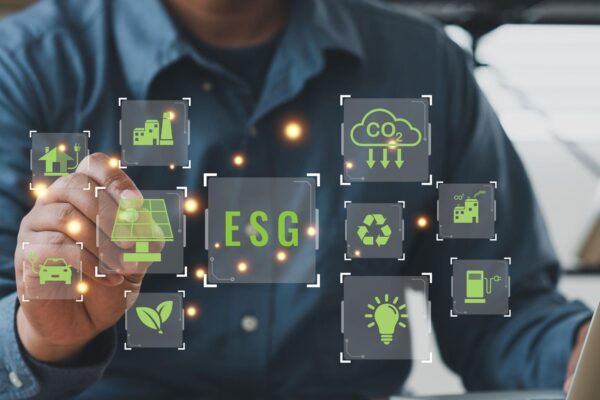The global energy landscape is undergoing significant shifts, driven by escalating demand, geopolitical tensions, and the urgent call for sustainable practices. Yet, amid this transformation, many businesses and governments still overlook the looming reality of an energy crisis.
Read other article : Fast-Moving Consumer Goods (FMCG) Companies Initiatives to Adopt Green Energy
Ignoring this issue is not just an environmental mistake, but it is a strategic business risk. The energy crisis is more than an environmental or political concern, but it is an economic and operational challenge that threatens stability, growth, and global sustainability.
This article explores why the energy crisis demands immediate attention from business leaders and stakeholders alike, and how proactive engagement is not only necessary for planetary survival but also critical for future-proofing business resilience. Let’s go through it!
Table of Contents
ToggleThe Growing Threat of Global Energy Crisis
All of us are aware that for decades, the world has depended heavily on fossil fuels such as coal, oil, and natural gas to meet its growing energy needs. However, this dependence comes at a cost. Fossil fuel reserves are finite, and their extraction and consumption contribute massively to greenhouse gas emissions, exacerbating climate change.
Recent geopolitical conflicts, such as the Russia-Ukraine war, have also highlighted how global supply chains for energy can be weaponized, disrupting markets and driving up costs. Meanwhile, emerging economies, particularly in Asia and Africa, are facing energy access gaps, while developed countries are encountering unprecedented price volatility and supply insecurity.
If current trends continue unchecked, we are heading toward a situation where energy shortages could derail economic growth, deepen poverty, and lead to social unrest. Businesses must acknowledge that an unstable energy market is no longer a distant or theoretical risk which is actually happening now.
Indonesia itself, still has a very high dependency on fossil energy, with fossil fuels accounting for 94% of the country’s total energy mix. This consists of 32.2% petroleum, 18.9% natural gas, and 37.2% coal.

Why Businesses Can’t Afford to Ignore the Crisis
All parties, including businesses can not ignore the crises. Because ignoring the energy crisis poses direct risks to business continuity. Energy is the lifeblood of virtually every industry such as manufacturing, transportation, logistics, and even digital services rely on consistent energy availability. Fluctuating energy prices can wreak havoc on supply chains, increase production costs, and shrink profit margins.
Beyond operational risks, companies that fail to act will face mounting reputational damage. Today’s investors, consumers, and regulators are increasingly holding businesses accountable for their environmental and social impacts. Companies that ignore sustainability and energy efficiency will likely face higher regulatory scrutiny, lose investor confidence, and fail to attract sustainability-conscious consumers.
Moreover, forward-thinking organizations recognize that addressing the energy crisis offers not just risk mitigation, but also a significant business opportunity. Clean energy investments, circular business models, and technological innovations are opening new markets, creating jobs, and unlocking long-term growth potential.
Integrating Renewable Energy
Throughout this situation, one of the most effective ways for businesses to mitigate the energy crisis is by transitioning to renewable energy sources. Solar, wind, hydro, and geothermal power are not only abundant and increasingly cost-competitive but also aligned with global sustainability goals such as the UN Sustainable Development Goals (SDGs) and national commitments to the Paris Agreement.
Large multinational corporations have already paved the way. Companies like Google, Apple, and IKEA have committed to renewable energy operations. These efforts reduce exposure to volatile fossil fuel markets, stabilize operational costs, and enhance brand reputation among environmentally conscious stakeholders.
However, the responsibility does not lie solely with large enterprises. Small and medium-sized businesses (SMEs, or Indonesian UMKM) must also begin their transition, whether by installing solar panels, purchasing renewable energy certificates, or participating in collaborative renewable energy projects.
Embracing Technology for Energy Efficiency
Transitioning to renewable energy is only one part of the solution. Energy efficiency is equally vital in addressing the crisis. Fortunately, digital technology has made significant strides in enabling smarter, more efficient energy use across sectors.
The adoption of Internet of Things (IoT), artificial intelligence (AI), and big data analytics now allow businesses to monitor energy consumption in real-time, identify waste, and optimize operations for maximum efficiency. Additionally, businesses can explore circular economy practices, where waste from one process becomes input for another, reducing total energy demand across value chains. Combining energy efficiency with renewable energy not only cuts emissions but also delivers significant cost savings over time.
ESG Reporting: Turning Responsibility into Advantage
After all, the ESG reporting should not be left behind. Environmental, Social, and Governance (ESG) frameworks have evolved from being optional to essential for businesses that want to remain relevant in today’s economy. Energy use and emissions reduction are at the heart of the environmental pillar of ESG. Investors, especially institutional ones, are increasingly screening portfolios based on ESG performance.
Transparent ESG reporting not only demonstrates responsibility but also strengthens a company’s access to capital, as sustainability-focused investors favor companies that show clear environmental stewardship. In markets like Europe, mandatory ESG disclosures are already standard, and similar trends are growing globally.
Businesses that integrate energy transition strategies within their ESG frameworks will not only mitigate risks related to climate change but also capture the trust of customers, partners, and investors.
If your business is ready to take proactive steps toward energy transition and sustainability leadership, Satuplatform is here to help. With environmental management solutions, expert guidance on ESG frameworks, and a commitment to driving measurable environmental impact, Satuplatform.com provides an all-in-one solution for responsible businesses.
Visit satuplatform today and build your pathway toward a smarter, cleaner, and more resilient business future.!
Similar Article
Bagaimana Peran Perang dan Militer sebagai Kontributor Jejak Karbon Global
Konflik dan perang menciptakan kontributor jejak karbon baru dengan dampak signifikan dan sayangnya, sebagian besar tidak dihitung. Emisi ini jarang…
Why Product Lifespan Is the Next Frontier for Sustainable Business
Embracing product longevity and extending product lifespan emerges as a current and indispensable strategic priority for cultivating sustainable business growth…
Green Building sebagai Cara Mengurangi Jejak Karbon, Ini yang Perlu Dilakukan!
Di tengah isu perubahan iklim yang semakin mendesak, bisnis dan masyarakat global mulai sadar pentingnya pembangunan yang lebih ramah lingkungan.…
Unveiling the Environmental Impact of Children’s Toys Industry
The global toy industry plays a significant role in early childhood development, creativity, and education. Toys bring joy, imagination, and…
ESG as Sustainability Initiatives for Modern Industry
In today’s world, sustainability is no longer just a “nice-to-have”, but it’s a must. With rising concerns about climate change,…
ESG Strategies for Business Growth in Developing Countries
In today’s fast-changing world, businesses are no longer only measured by profits. Companies are now expected to be responsible for…







